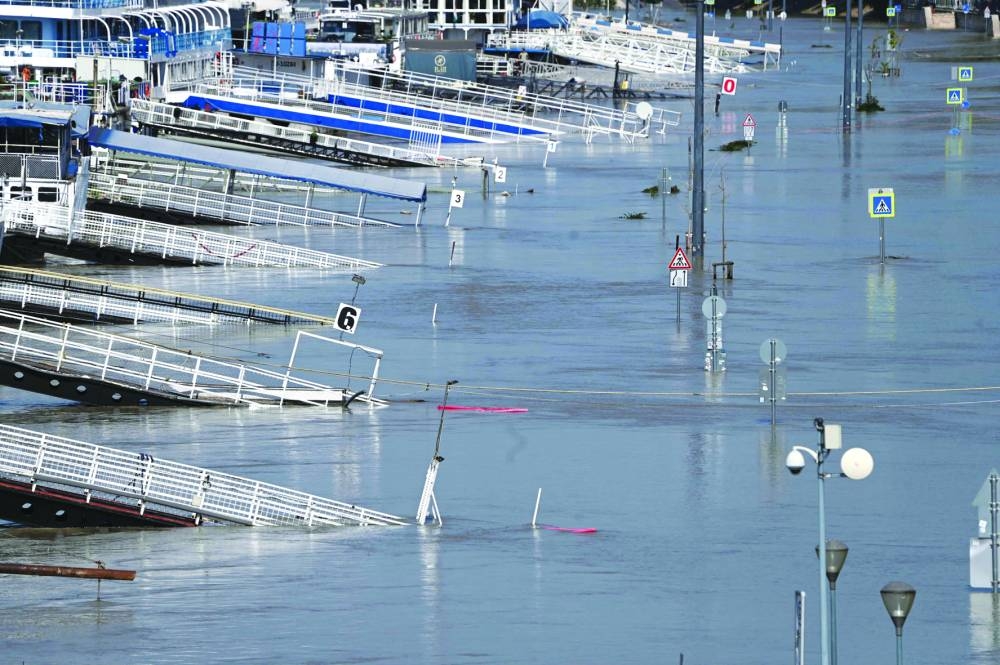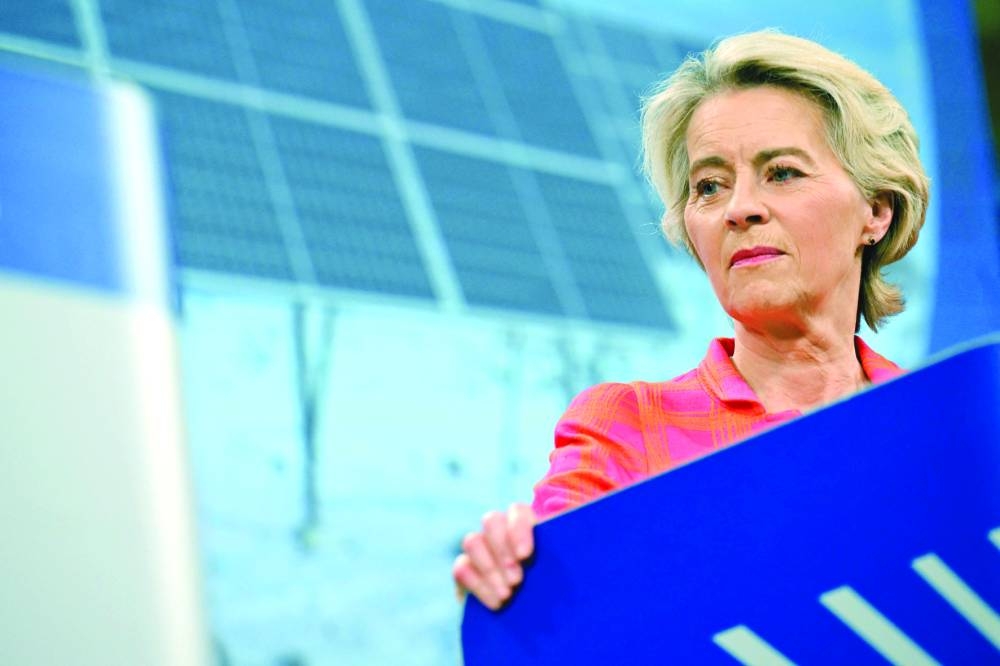The European Union will make billions of euros available to help central Europe recover from severe floods, European Commission President Ursula von der Leyen said on Thursday, as she pledged support for regions that have been devastated by the deluge.
The worst floods to hit central Europe in at least two decades have caused widespread damage from Romania to Poland, killing at least 24 people, destroying bridges, submerging cars and leaving towns caked in mud and debris.
“It was for me on the one hand heartbreaking to see the destruction and the devastation through the floods,” she told reporters. “But I must also say it was on the other hand heartwarming to see the enormous solidarity between the people in your countries.”
The flooding was caused by torrential rain that began last week and lasted for several days, causing rivers to burst their banks in several parts of the region.
“I am here to reassure you that Europe stands by your side,” she told a news conference in the Polish city of Wroclaw, standing alongside leaders of the affected countries. “This is a moment of need, of... natural disaster and we have all to stand together to overcome the challenge.”
Von der Leyen said that €10bn ($11.16bn) would be made available from EU cohesion funds and that some of the conditions usually attached to such funds, such as co-financing by member states, would be lifted to make the response quicker.
Cohesion funds usually require co-financing from the member states but in this case von der Leyen said it would be “100% European money, no co-financing”.
“These are extraordinary times and extraordinary times need extraordinary measures,” she said.
She also said that money from the EU’s Solidarity Fund, which supports member states hit by natural disasters, would be used to rebuild infrastructure.
Polish Prime Minister Donald Tusk told private broadcaster Polsat News that Poland could get €5bn.
“What we need now is to quickly build, repair infrastructure, it will cost huge amounts of money, it would be tough to handle it from national budgets,” said Czech Prime Minister Petr Fiala, adding he was grateful for von der Leyen’s concrete proposals for help.
Czech Finance Minister Zbynek Stanjura said earlier that the government would provide 30bn crowns ($1.3bn), about 0.38% of GDP, in a 2024 budget amendment and earmark 10bn crowns more in the 2025 budget to help with flood damage.
Czech Interior Minister Vit Rakusan said most power supply should be reconnected by today.
The country is holding regional elections this weekend and authorities said a satellite connection had been set up in places where mobile signal is lacking, to allow the vote to go ahead.
Meanwhile, flood defences in Poland’s third-largest city, Wroclaw, looked to have held firm on Thursday.
The flood wave that has inundated the Polish-Czech border region since the weekend reached Wroclaw overnight, but there were no signs of serious damage.
“The urban system withstood and absorbed the main wave of the floods that have been hitting Lower Silesia and neighbouring regions for a week,” local authorities said in a statement on Facebook.
However, authorities warned that larger than usual levels of water would keep flowing through the city in the coming days.
Agnieszka Popow-Wozniak, 44, an employee at an infertility clinic who had cycled through the city, told Reuters the situation seemed to be better than expected, adding: “There is no flooding in the city centre at the moment.”
The army said 16,000 soldiers were helping out in the region, alongside police and thousands of volunteers.
Prime Minister Tusk said officers from Poland’s Internal Security Agency (ABW) had arrested a person who had dressed up in a soldier’s uniform and falsely told members of the public that flood defences were going to be blown up.
Poland has warned citizens to be alert for disinformation about the floods.
In Hungary, towns were dealing with the rising Danube River, and Prime Minister Viktor Orban said the water level in Budapest was expected to peak this afternoon or evening, but that it would be lower than record levels seen in 2013.

The piers of tourist boats and traffic signs are partially submerged in the floodwater of the Danube river in Budapest. – AFP

Ursula von der Leyen
